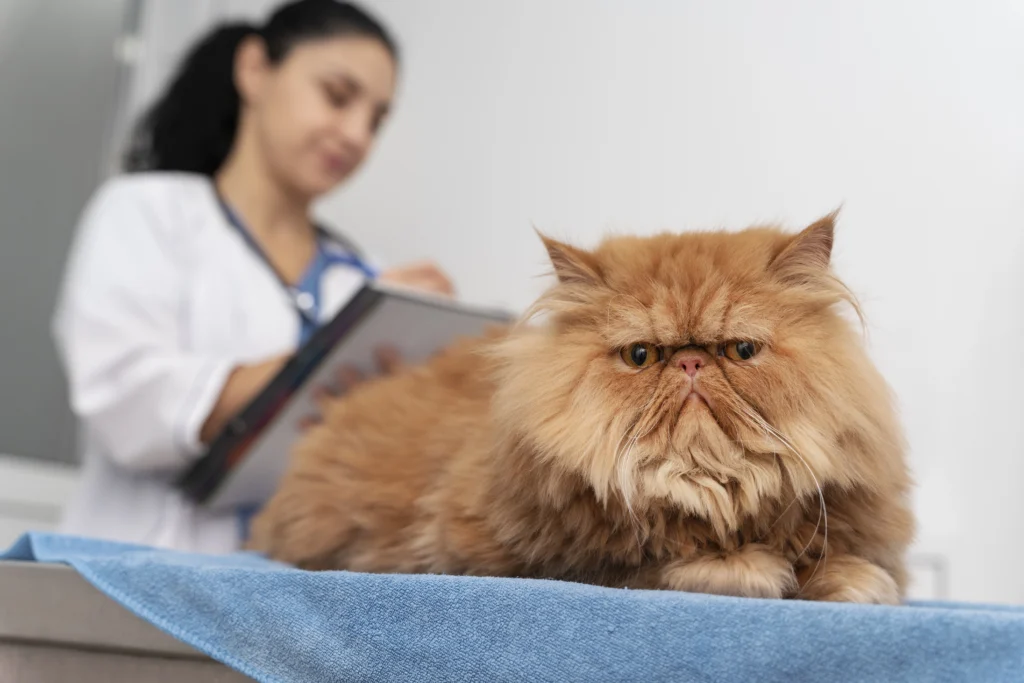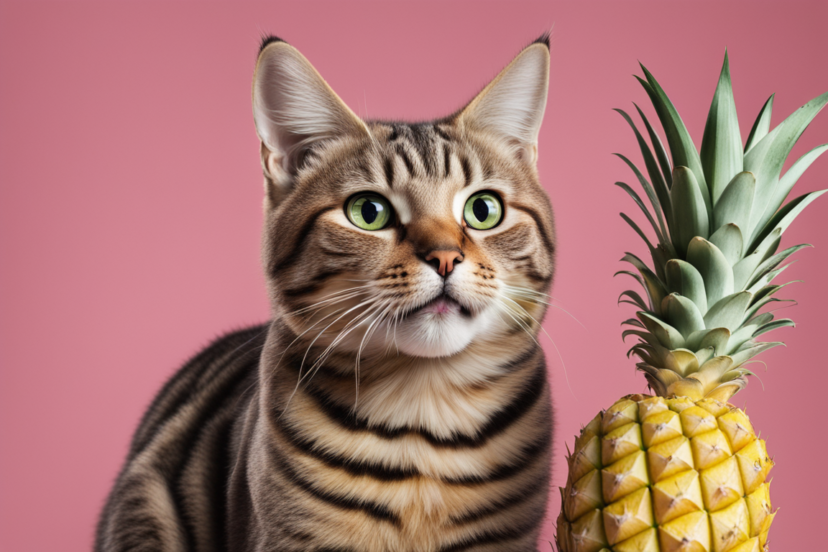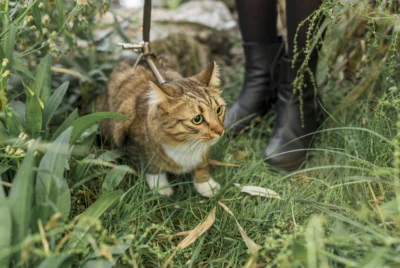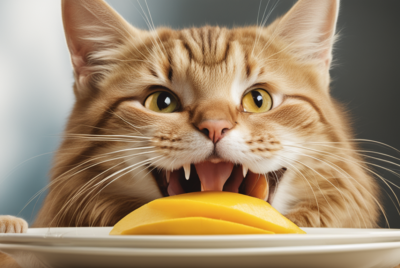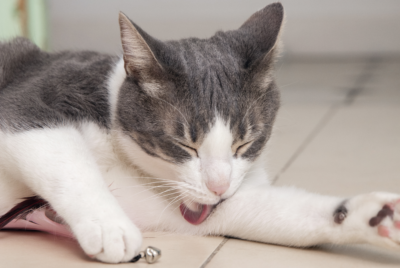Can Cats Eat Pineapple?
Cats and their human companions often share an interest in tropical fruits like pineapple. As an exotic fruit packed with vitamins and minerals, pineapple can seem like a healthy snack for pets, too. However, many pet parents wonder if cats can technically eat pineapple and if it is truly safe for cats.
Generally, yes, cats can eat pineapple – a fresh pineapple to be specific. But putting this in your cat’s diet does not offer any health benefits. Feeding your feline friend a canned pineapple is a completely different story altogether.
This comprehensive guide explores the topic of cats and pineapple consumption. We’ll address concerns over the high sugar content and potential for digestive upset. We’ll also discuss the nutritional benefits – or lack thereof – for felines. By the end, you’ll clearly understand whether your furry friend can enjoy this tropical treat.
Cats and Pineapple For A Safe Treat in Moderation
Cats can eat pineapple sometimes as a small snack without harm. But pineapple is not the best part of a cat’s regular food. Cats are obligate carnivores, which means they do very well eating meat protein as their diet rather than fruits and vegetables.
Even when cats eat a tiny bit of pineapple, it does not provide them with many nutrients. Since cats don’t find fruits in nature, their bodies may not break down some plant parts as well as people’s. If cats overeat pineapple regularly, the high sugar could cause upset digestion.
Understanding a Cat’s Diet as Carnivores
Domestic cats are considered obligate carnivores. This means they can only get the nutrients they need by eating meat and organs from animals. In nature, cats find their food by hunting small animals and birds.
Cats are made to eat meat. Unlike people, cats cannot easily digest plants and carbohydrates. Their diet needs about 30% protein from crude protein.
A cat’s stomach is also more acidic than a human’s—about 1.5 times more acidic. This acid helps break down animal tissue. It works well for meat but struggles with plant fibers, fruits, and vegetables. Giving cats too many plant foods can upset their digestion.
Fresh vs. Canned Pineapple for Cats
When considering feeding pineapple to cats, knowing the difference between fresh and canned pineapple is essential. Fresh pineapple has natural sugars but no added sweeteners. However, many canned pineapples come in lots of sugary syrup. This syrup poses more risk to pets.
Too much sugar can be an issue for cats since they struggle to break down carbs. A lot of sugar over time can cause weight gain, diabetes, dental problems, and other health problems if given regularly. In general, it’s best not to feed cats pineapple in syrup. As a sometimes treat, fresh pineapple without syrup is better. Just take off any syrup first.
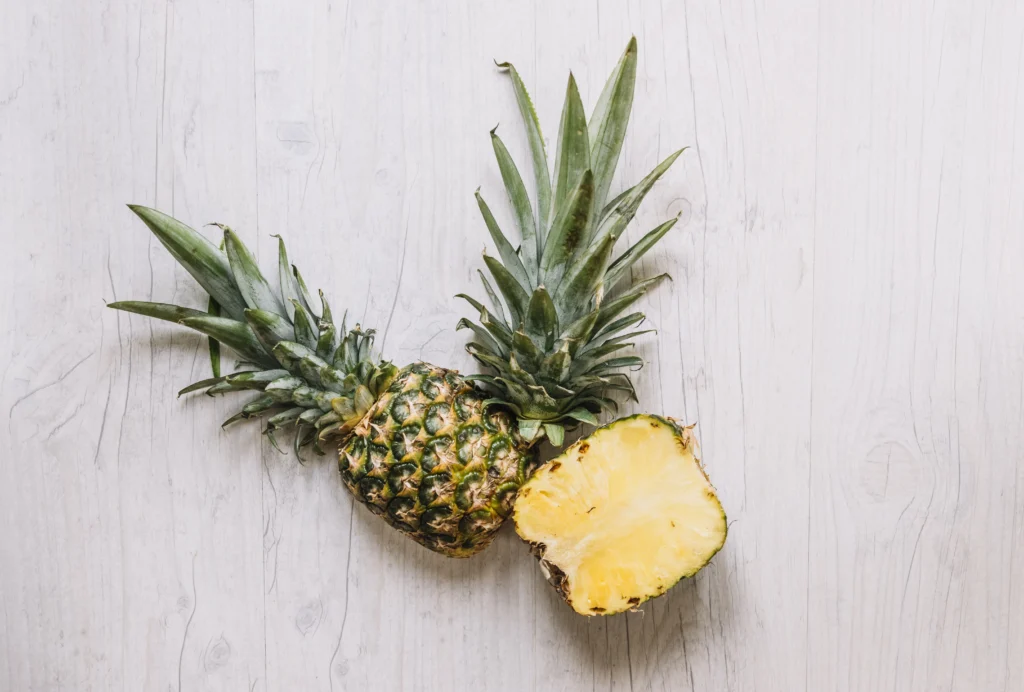
Nutritional Benefits of Pineapple (For Humans, Not Cats)
While pineapple may be packed with vitamins and minerals that benefit humans, cats do not significantly benefit nutritionally from its consumption. Some of pineapple’s compounds, like bromelain, vitamin C, and manganese, provide antioxidant and anti-inflammatory support for people. But cats can meet their vitamin and mineral needs through a balanced meat-based diet.
Sweet Taste Receptors in Cats
Unlike people, cats cannot taste sweetness due to having fewer sweet taste receptors on their tongues. Sugars and artificial sweeteners hold little appeal for felines.
This helps explain why cats are generally less interested in fruits and other sweet foods than humans and dogs. Their taste buds evolved to seek out savory meat flavors rather than plants. So don’t expect cats to beg for pineapple as eagerly as they would for wet food.
Digestive Upset from Pineapple in Cats
As implied earlier, pineapple’s high natural sugar content poses risks if eaten in significant quantities by cats. Too much fructose risks digestive problems like diarrhea or vomiting. While small amounts rarely cause issues, too much could lead to gastrointestinal upset. Signs of indigestion may include:
- Refusing food
- Loss of appetite
- vomiting
- Diarrhea
- Constipation
- Abdominal pain or discomfort
Dietary indiscretion is a common cause of digestive upset in pets. To prevent gastrointestinal distress, it’s wise to avoid regularly feeding cats more than an occasional bite of pineapple. As obligate carnivores, their digestive systems are simply not designed for frequent high sugar intake.
Can Pineapple Be Toxic to Cats?
Any food can be toxic to cats if eaten in large amounts. But generally, pineapple is thought not to cause poisoning in average amounts for cats. There are no records of pineapple alone making cats sick.
Still, like before, lots of fruit carries risks like weight gain, diabetes, and stomach troubles. Eating pineapple gives cats more nutrition than protein from animals. So, while pineapple may not be poisonous, regular eating of it is still not good with a cat’s natural meat-eating diet.
It’s better to give it sometimes in small amounts instead of replacing part of their regular food.
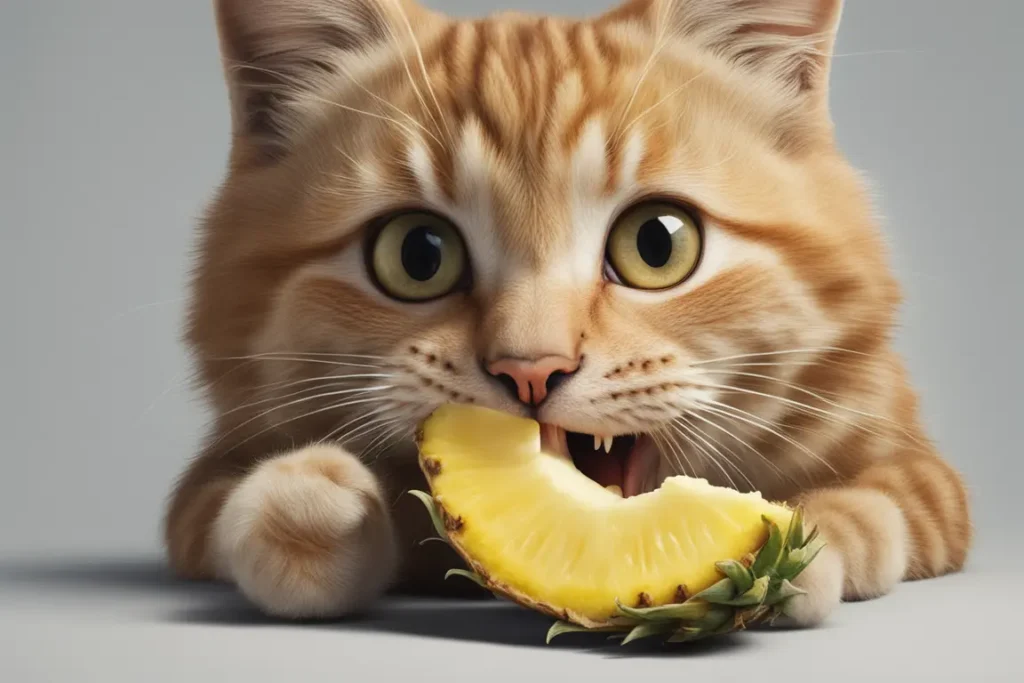
Allergic Reactions to Pineapple in Feline Friends
Some cats may exhibit mild allergic reactions to pineapple on rare occasions, such as itchy skin or hives. This happens infrequently, but it is possible if the pet is already sensitive to certain fruits. Signs of potential feline food allergy may include:
- Itching or scratching
- Hives
- Red or swollen skin
- Loose stool or diarrhea
- Vomiting
- Sneezing or coughing
Most cats will not react allergically. Still, it’s wise to introduce new foods gradually and watch for signs of allergy before giving large portions. Consult your vet if reactions occur.
Offering Pineapple as an Occasional Treat
If introducing pineapple, limit initial servings to about 1/2 inch cube per 5 pounds of body weight as an occasional treat. Give only a few bites at a time rather than whole slices. This helps prevent digestive issues caused by too much sugar intake. Some tips:
- Remove any tough rind or core which could pose choking risks to pets
- Feed fresh pineapple only, avoiding canned varieties packed in syrup
- Watch for signs your cat may not care for pineapple’s flavor before offering it often
- Limit consumption to a few times per month, not a daily snack
- Never replace significant portions of the diet with fruit as cats require animal protein
- Constantly monitor your cat’s reaction after any new food introduction
Safe Fruits for Cats As Alternatives to Pineapple
While most fruits should generally not make up a large portion of a cat’s diet, some can be given in small amounts as an occasional treat when supervised. Other options that are typically safer than pineapple include:
- Strawberries – Low in sugar, many cats enjoy these
- Watermelon – High water content, minimal sugar impact
- Cantaloupe – Nutritious yet mild melon option
- Banana – Tiny pieces only to avoid choking risk
As always, introduce new fruits slowly and watch closely for signs of digestive distress before offering more generous portions. Consult your vet to determine what’s safest based on your cat’s needs.
Also read: Can Cats Eat Mango? A Guide to Sharing This Tropical Treat
Pineapple Leaves and Essential Oils Are Potential Choking Hazards
Most cats can handle eating pineapple fruit. But leaves, spikes, and cores pose dangers. The non-fruit parts hold lots of the enzyme bromelain. This can irritate and cause gut or throat problems if a cat swallows it.
Essential oils from pineapple are also very poisonous if cats or dogs eat them, so make sure to keep all non-edible pineapple pieces out of reach. Bits could break off, and a pet might accidentally swallow them. This risks choking or blockage in the intestines, which can threaten life.
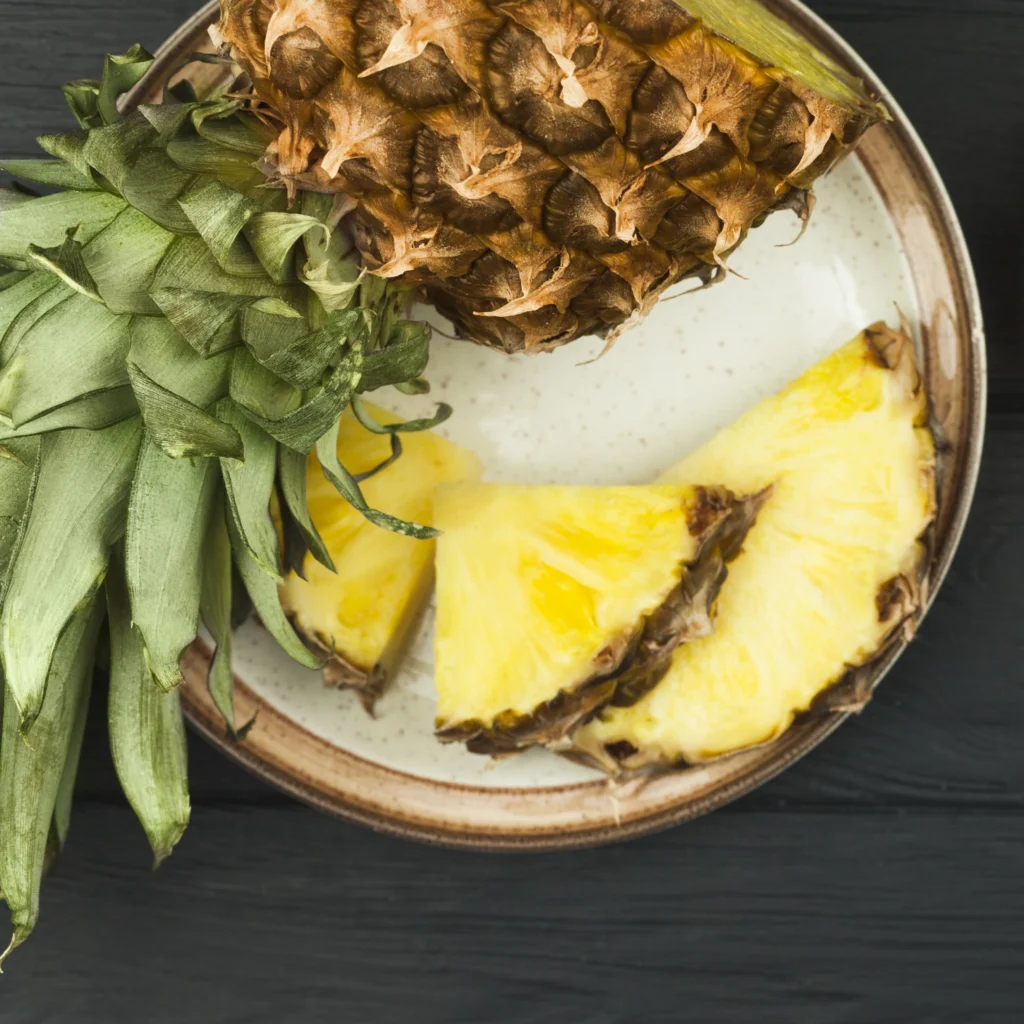
Introducing New Foods to Your Cat’s Diet
Talk to your vet first if you think of adding something new to your cat’s diet. Health issues differ with each pet. While some fruits pose low risk for many cats, the vet can see if a particular food clashes with a medical problem.
Introduce any dietary changes slowly over one week. At first, feed just a teaspoon and watch how your cat responds. Look for signs of not tolerating it, such as throwing up, diarrhea, rashes, or other tummy troubles. Only give more if there are no issues. Always put new foods following regular food, replacing it partially.
Cat’s Reaction to Pineapple Showing Digestive Issues
If providing an occasional pineapple treat, carefully supervise consumption and watch your cat intently afterward. Please pay close attention to any changes in behavior, appetite, or signs they may not feel well digestively. Some key things to watch for in the hours following pineapple ingestion include:
- Refusal to eat the next meal or snacks
- Lethargy, hiding more than usual
- Diarrhea, loose stool, gastrointestinal discomfort or pain
- Regurgitation or vomiting
- Swelling or hives on the skin
